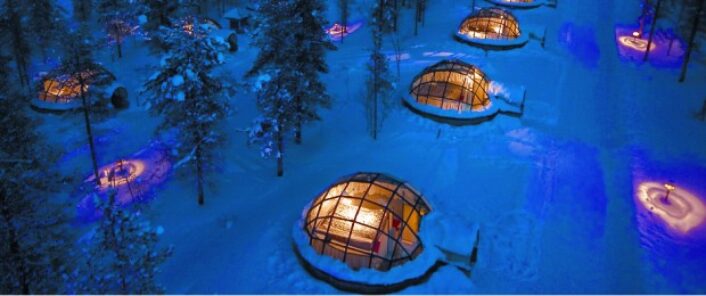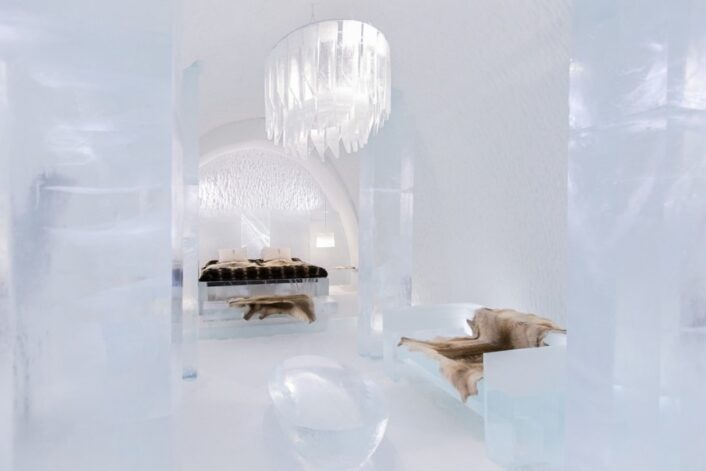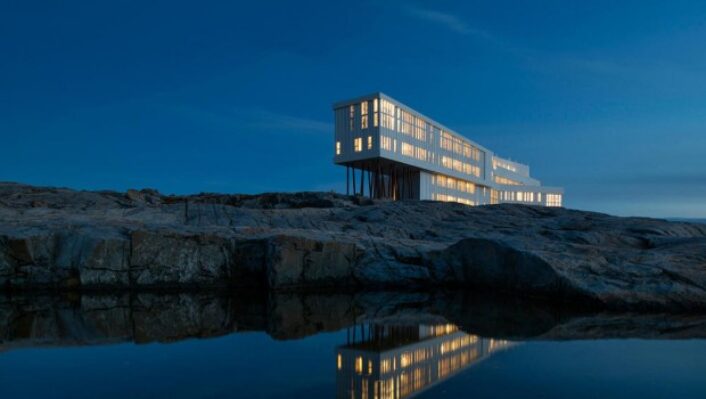Architecture
Circular hotel in Arctic reflects 360-degree views!

The hotel’s shape and structural elements are inspired by traditional Norwegian rorbue houses and fiskehjell (buildings used to dry fish). Image courtesy of: Travel and Leisure
There isn’t anything quite like the nature in the Arctic… and the remoteness of it frightens some people. That’s why the Svart Hotel in Norway, virtually an extension of the Holandsfjord shoreline, is such an amazing feat. With consideration to native flora and fauna; and with respect to the cold temperatures and lack of solar intensity, building materials need to be properly weather-resistant.
More amazing is that this hotel will be an energy net-positive hotel… the first, not surprisingly, in the Arctic. It’s thought that over a 60-year period, the Svart Hotel will generate more renewable energy than what will be required to build, operate and if necessary, demolish it.
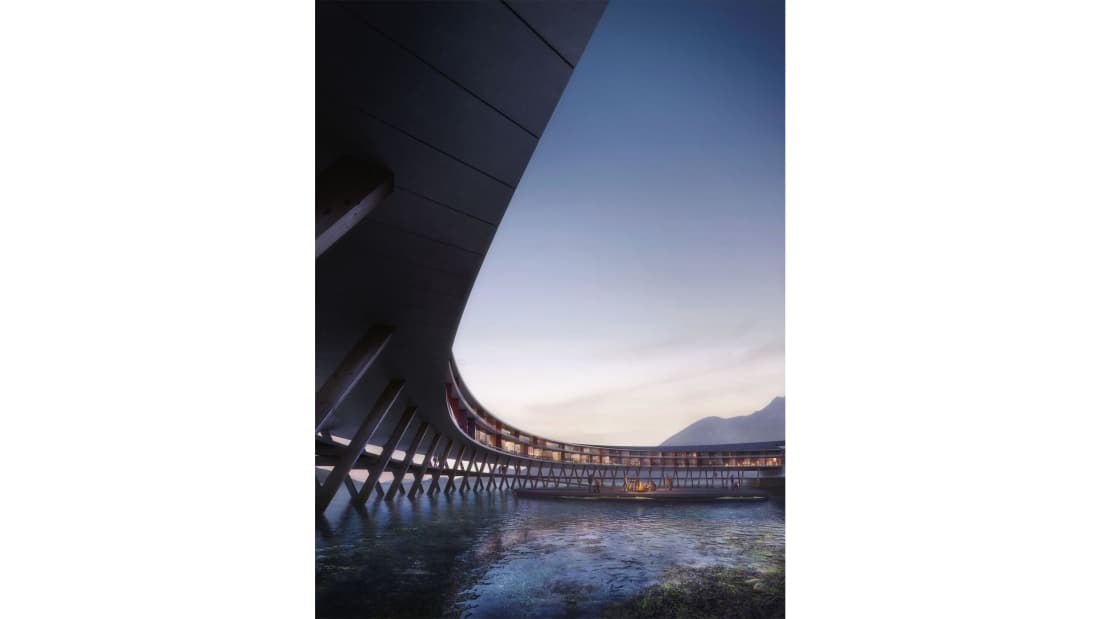
The hotel’s horizontal design leaves a minimal footprint on site. Image courtesy of: Travel and Leisure
The effort to increase tourism in the Arctic region is increasing; and that’s why it was so important that this hotel be built in a renewable energy fashion. Once it opens in 2021, Svart Hotel will use 85% less energy than similarly built, though traditional, hotels.
It was Snohetta’s first hotel design. Project manager, Zenul Khan said of the hotel, “Nature in the Arctic is fragile and pristine. We have to respect the beauty of the location and not ruin what makes Svartisen an attraction in the first place.” The hotel’s rooftop solar panels, geothermal wells, and building geometry have been optimized. The hope is that this sustainability to tourism will wear off on others in the industry… operators and travelers alike.
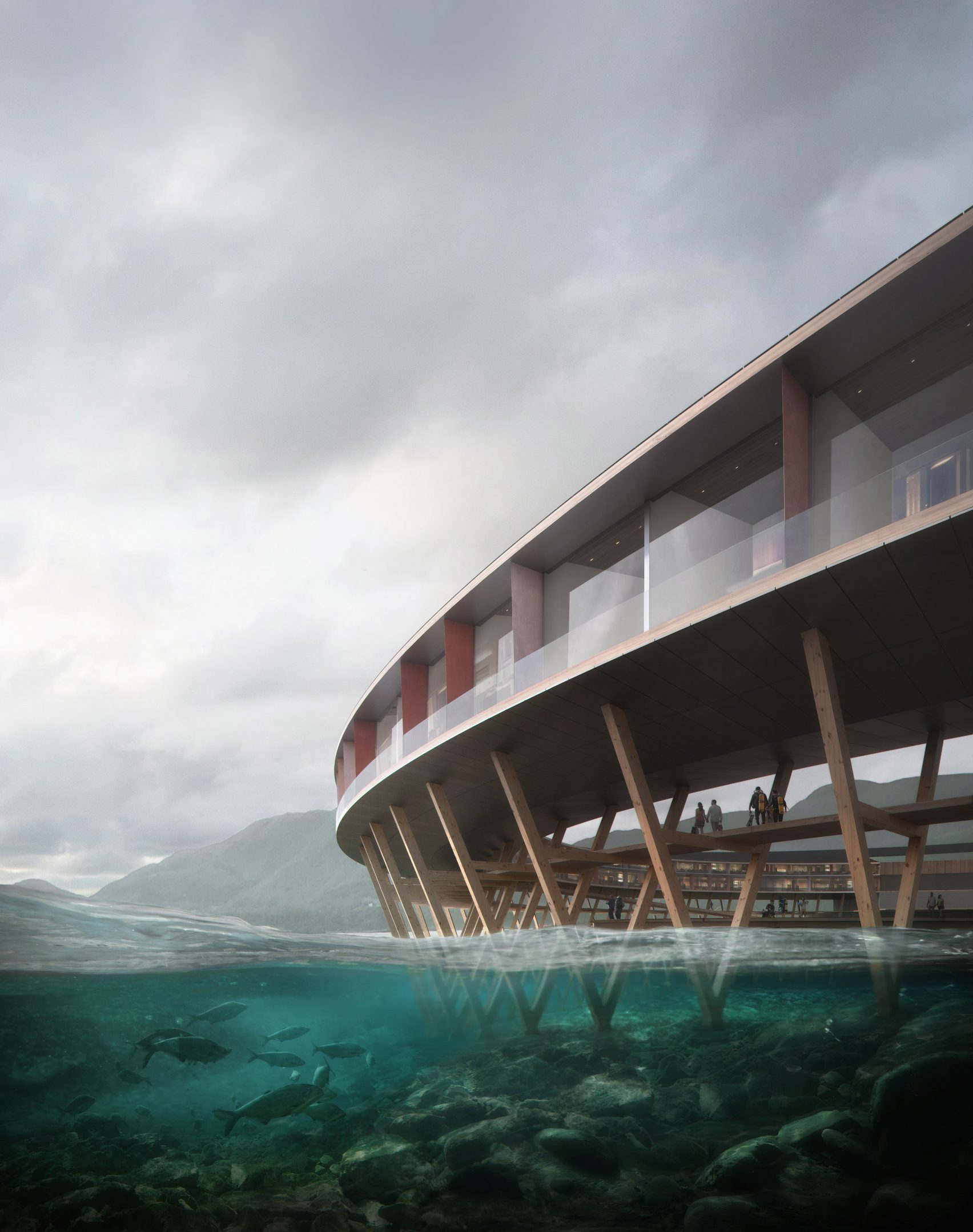
The hotel’s main body is held up by a series of V-shaped wooden poles that extend into the connected fjord. Image courtesy of: Dezeen
Making use of the sun’s energy in the most effective way for each season is something that will surely be copied for decades to come. During the summer months, the hotel’s facades protects against isolation from the sun; while in the winter months, the large windows throughout allow for the maximum sun to shine through and heat the building. As is such, there’s no need for air-condition in the summer and artificial heating is drastically reduced during the long winter months. Finally, the roof makes use of the sun’s energy as it’s clad with Norwegian solar panels which were produced with clean hydro energy.
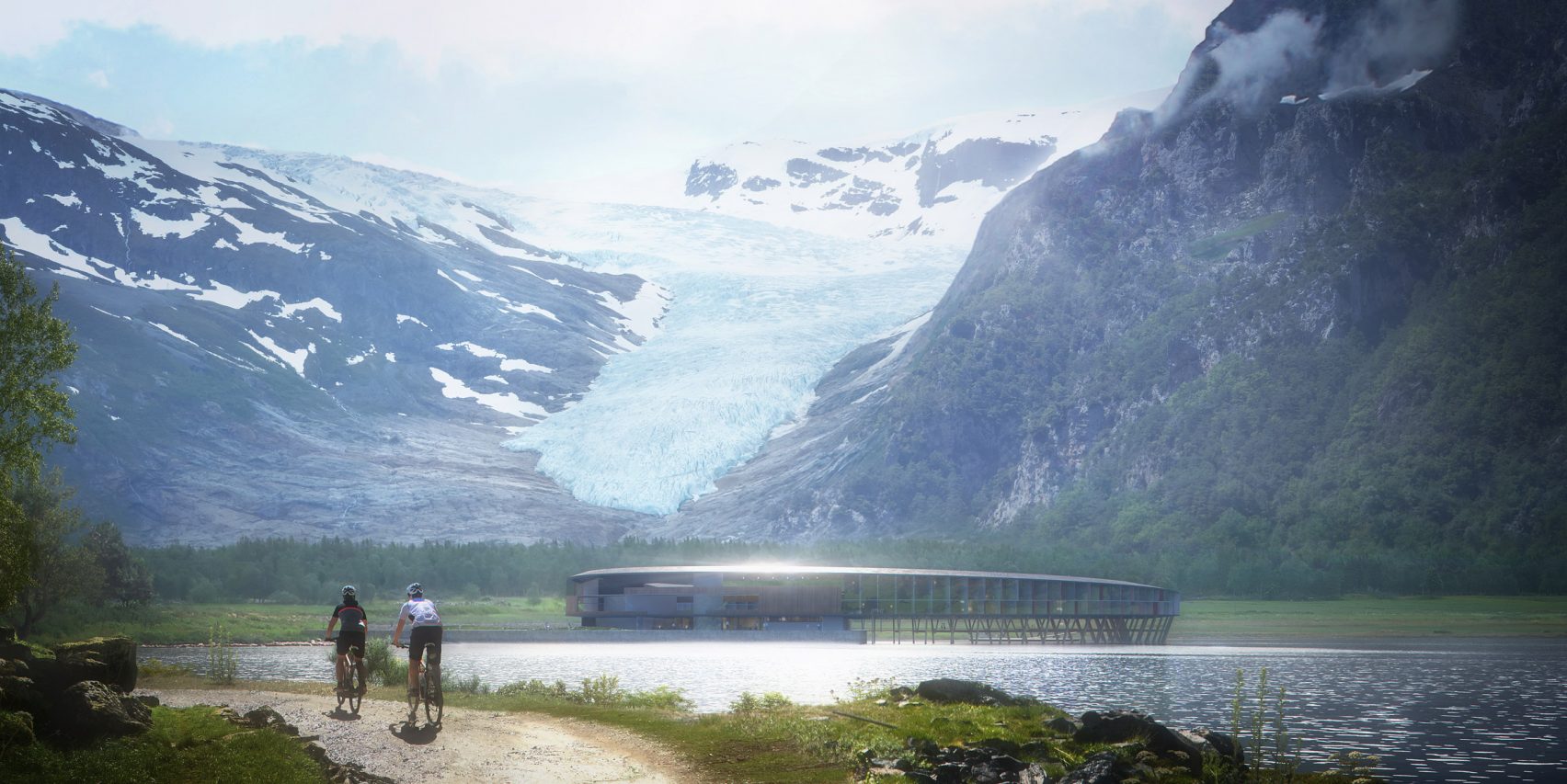
Snohetta, the architectural firm responsible for this incredible project, was set on disturbing as little of the mountain environment as possible! Image courtesy of: Building Design + Construction
It took meteorologists working jointly with architects to figure out how to most effectively build this structure. The movement of the sun’s rays were mapped, and architects decided that a circular structure topped with solar panels would provide the most optimal levels of light throughout the days and during Norway’s different seasons.
Remember, the client is Arctic Adventure of Norway and their main intent is to increase tourism to this part of the country whilst maintaining the integrity of the surrounding area.
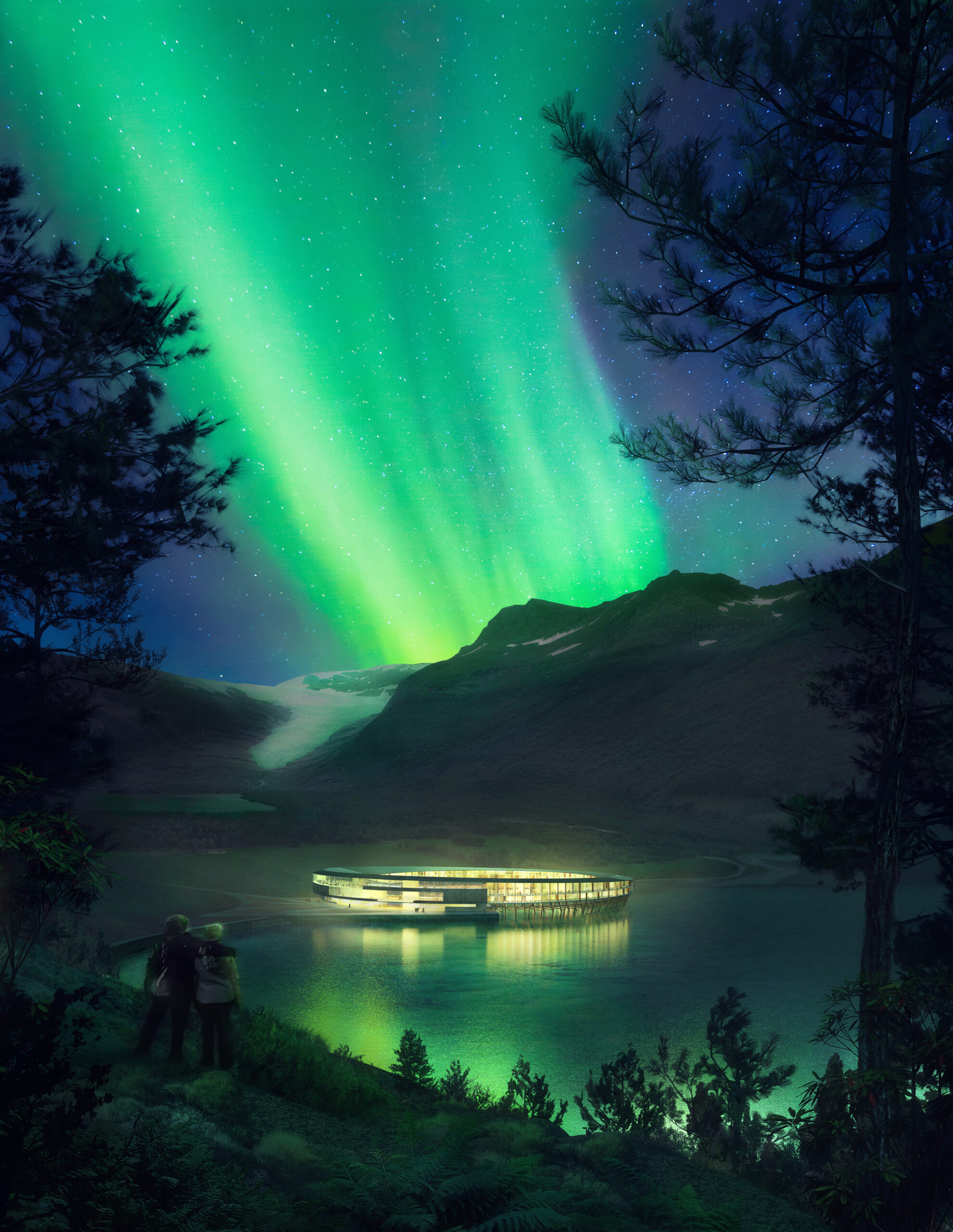
We aren’t sure there’s a better place to see the Northern Lights. Perhaps it’ll soon be time to take a trip to the Arctic? Image courtesy of: Snohetta
In Norwegian, the name “Svart” means black. This is a direct tribute to the deep blue ice of the Svartisen and the Svartisen name. “Black” and “blue” are the same in old Norse; and as such, the name references the natural heritage of Svartisen, its beautiful glacier, and the natural surroundings.
Taking into account the colors of the area’s surroundings, the blue colors mimic the glacier’s natural shades. This space is sure to be splendid!
